Video: Cattle Suffer Heat Stress and Beatings in E.U.
Following numerous complaints by NGOs and members of the E.U. Parliament, the European Commission carried out an audit into the live export industry in the Croatian port of Raša during September 2018. The report has now been released, revealing a range of animal welfare issues for European animals being exported to the Middle East and North Africa.
Raša is a small port but one of Europe’s major exit points for live animals, mainly cattle. In 2017, there were 2,164 trucks of live animals - mostly cattle arriving by road from Hungary, Croatia, Germany, Romania, Italy and the Czech Republic. The animals were loaded onto 78 vessels, the majority sailing to Lebanon, Israel, Turkey and Iraq.
The audit revealed veterinarians supervising shipments were unable to perform tasks due to time constraints and technical ability. For example, it documents failures to inspect water, ventilation and lighting systems on board livestock carriers. It also notes that local authorities had not approved a classification society to verify the strength calculations of pen rails and decks on livestock carriers.
The audit states: “The Croatian system to approve livestock vessels for transport in the E.U. and for inspecting them before each loading does not minimize the risk of adverse welfare conditions for the
animals during the journey. This happens because the veterinary inspectors have neither sufficiently detailed instructions nor sufficient technical knowledge to properly assess the vessel's facilities and they allocate a very short time to inspect vessels.”
Breaches of E.U. law relating to animal welfare were also documented. For example, for four days, the uncoordinated arrival of 101 trucks was observed when daytime temperatures exceeded 30°C, the legal limit for animal transports. The report stresses that under these conditions, “the loading of vehicles at departure should not have been carried out.”
Animal welfare organizations have gathered images and footage of what they see as unacceptable practices at the port.
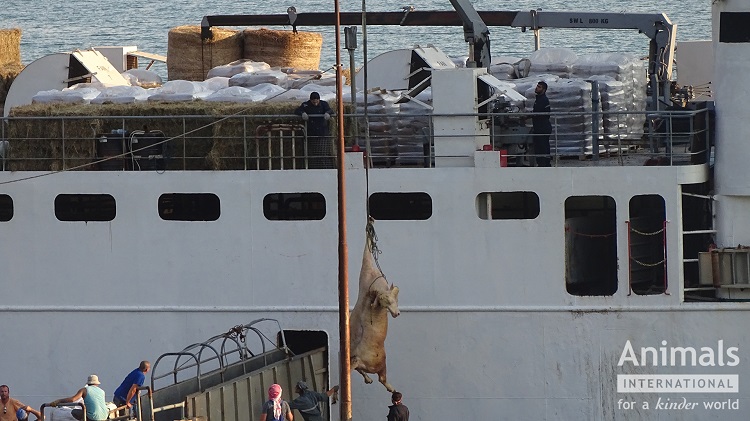
Bull craned on to vessel
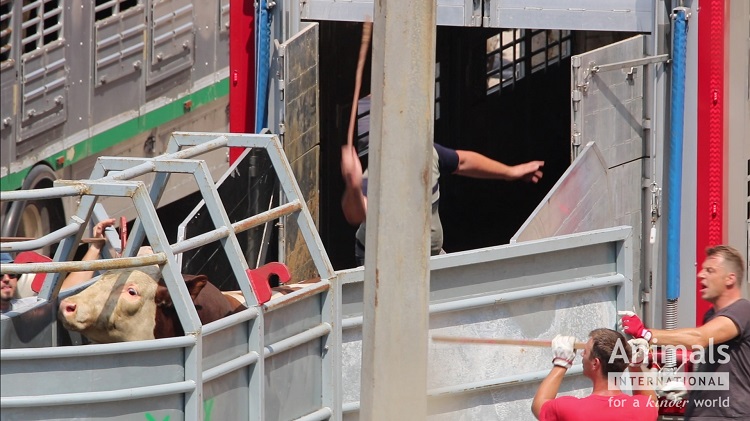
Beating bull with stick
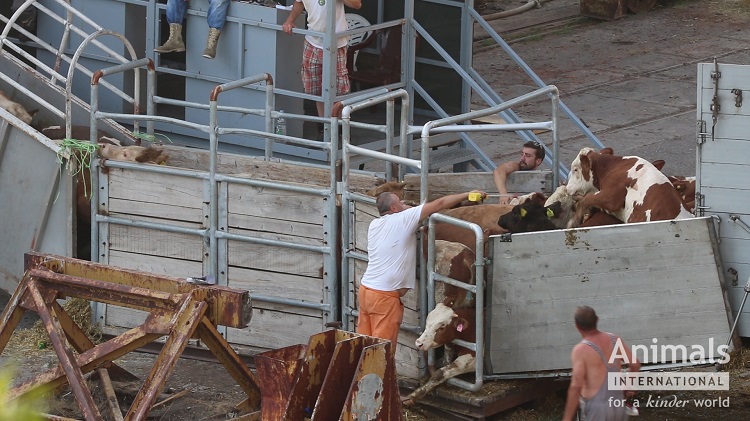
Panicked animals
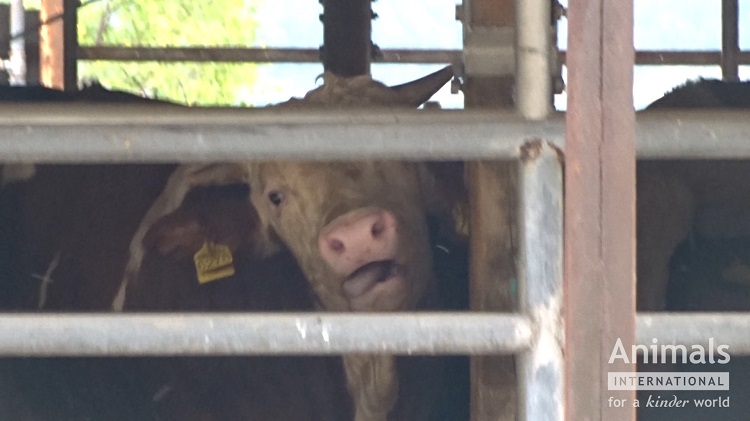
Animal suffering heat stress
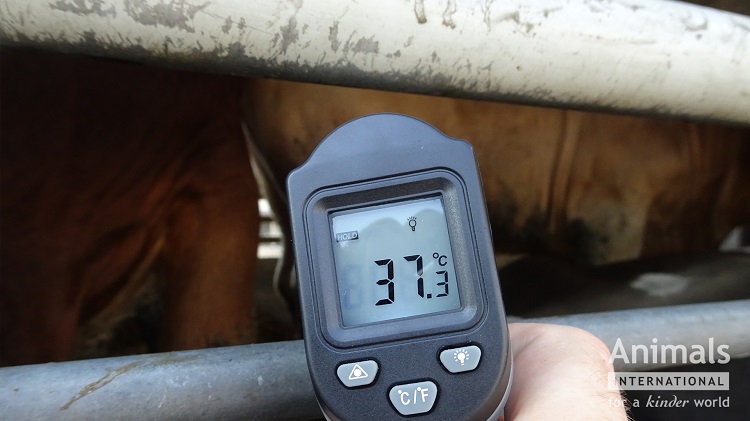
Temperature in truck
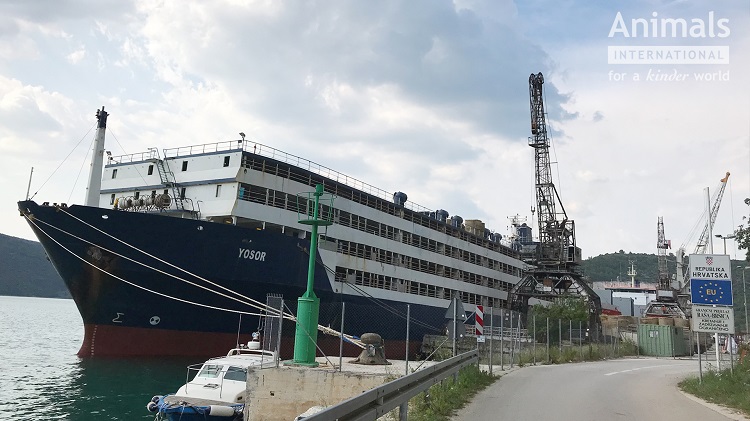
Livestock carrier in port
“Workers have brutally kicked animals and loaded even those unfit for further transport right under the eyes of the official veterinarian,” said Gabriel Paun, E.U. director of Animals International. “Inappropriate loading facilities made it possible that scared animals escaped and had to be forcefully moved on the vessel by untrained workers. Last August we took evidence of a barbaric scene when an unfit large bull was being lifted with a crane by one leg onto the vessel. This is absolutely illegal. Raša received its bad reputation in the international media 20 years ago when a similar scene took place.”
"We document the state of live animals arriving at the ports of Israel after their awful journeys from Raša and other E.U. ports,” says Yaron Lapidot, spokesperson for Israel Against live Shipments. “When they arrive, they are dirty, often covered in faces and many are severely wounded. Some are barely a few weeks old, weak and cry out in the packed trucks. Their journey and suffering do not end at the port. They are transported to quarantines, feedlots and are later on slaughtered with barbaric methods that are illegal in the E.U.”
The veterinary authorities are either not trained to supervise loading or are powerless, said Iris Baumgärtner, Project manager Animal Welfare Foundation. “The report only confirms that our findings for the past four years in this harbor are not isolated incidents but the routine at Raša.”
The audit report is available here.

that matters most
Get the latest maritime news delivered to your inbox daily.
All imagery courtesy of Animals International.
